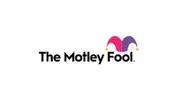Media Coverage

News 12 NJ
“What we’ve been seeing and hearing is there are shortages of various products at different places – really scattered,” says David Dreyfus, assistant professor of supply chain management at Rutgers Business School.
Dreyfus says that there are still international shipping problems causing supply chain issues. But he says that Omicron is making things worse industry-wide.
“All those people involved in making sure these items make it to our retails places or to the places we may order items online – it’s slowing down because there just isn’t enough labor to keep the same momentum we are used to,” Dreyfus says.
Dreyfus says that there are still international shipping problems causing supply chain issues. But he says that Omicron is making things worse industry-wide.
“All those people involved in making sure these items make it to our retails places or to the places we may order items online – it’s slowing down because there just isn’t enough labor to keep the same momentum we are used to,” Dreyfus says.

INSIDER
Jeana Wirtenberg, an associate professor at Rutgers Business School, associate director of the Rutgers Institute for Corporate Social Innovation, and the CEO of Transitioning to Green, said a marker of business success is being able to converge company growth with service to the environment.
At Transitioning to Green, a global management-consulting firm that helps companies integrate sustainability into their organizations, Wirtenberg's team is rolling out simulations and games, including an ecological-footprint game in which people can calculate their carbon emissions.
At Transitioning to Green, a global management-consulting firm that helps companies integrate sustainability into their organizations, Wirtenberg's team is rolling out simulations and games, including an ecological-footprint game in which people can calculate their carbon emissions.

WalletHub
When do you think it makes sense to seek out a credit card with no credit check for new applicants?
If an applicant has a hard time getting a credit card with a traditional vendor, then they may want to look at alternative providers. As with all credit cards, you should get one only if you believe you have the means and discipline to pay it off in full each month. The rate of interest most credit cards charge is usually much higher than the rate at which your savings grows. If you have no savings, I would suggest setting on a path to reduce debt so you can eventually start saving.
If an applicant has a hard time getting a credit card with a traditional vendor, then they may want to look at alternative providers. As with all credit cards, you should get one only if you believe you have the means and discipline to pay it off in full each month. The rate of interest most credit cards charge is usually much higher than the rate at which your savings grows. If you have no savings, I would suggest setting on a path to reduce debt so you can eventually start saving.

IR Magazine
Researchers examine every Supreme Court case involving at least one public company between 1946 and 2018
Academics, non-academics, the popular press and citizens frequently speculate and look for clues to predict the outcome of these cases, often with limited success. Do the financial markets, with their collective intellect and wisdom, and efficiency in processing information, also anticipate Supreme Court decisions relating to the corporate world? Can they correctly predict the impact of the actions of the justices, on average?
These are some of the questions we posed in our recent paper, ‘Do financial markets anticipate corporate-related decisions of the United States Supreme Court?’
Academics, non-academics, the popular press and citizens frequently speculate and look for clues to predict the outcome of these cases, often with limited success. Do the financial markets, with their collective intellect and wisdom, and efficiency in processing information, also anticipate Supreme Court decisions relating to the corporate world? Can they correctly predict the impact of the actions of the justices, on average?
These are some of the questions we posed in our recent paper, ‘Do financial markets anticipate corporate-related decisions of the United States Supreme Court?’

NASDAQ
Merav Ozair, a blockchain expert and Rutgers Business School professor, agrees, adding that the metaverse could disrupt education.
“Education and learning will be a big beneficiary,” she notes. “Education is pretty expensive but once you create a metaverse emulating in-person experiences, you will be able to learn from anywhere and with anyone. You won’t have to spend tens of thousands to travel to a particular school.”
Meanwhile, analysts say the metaverse will be a boon for cryptocurrencies, noting that its development will mark an inflexion point for their usage. As virtual-world platforms take off, stablecoins will likely win the race as most tokens are still too volatile.
Ozair agrees: “The metaverse is a virtual world; you cannot function without virtual currency."
"I am advocating for a truly decentralized, algorithmic-based stablecoin, something similar to DAI (an Ethereum-run decentralized currency pegged to the dollar) or even better,” She adds. "So far, Bitcoin can’t scale and Tether has too many regulatory issues and question marks.”
“Education and learning will be a big beneficiary,” she notes. “Education is pretty expensive but once you create a metaverse emulating in-person experiences, you will be able to learn from anywhere and with anyone. You won’t have to spend tens of thousands to travel to a particular school.”
Meanwhile, analysts say the metaverse will be a boon for cryptocurrencies, noting that its development will mark an inflexion point for their usage. As virtual-world platforms take off, stablecoins will likely win the race as most tokens are still too volatile.
Ozair agrees: “The metaverse is a virtual world; you cannot function without virtual currency."
"I am advocating for a truly decentralized, algorithmic-based stablecoin, something similar to DAI (an Ethereum-run decentralized currency pegged to the dollar) or even better,” She adds. "So far, Bitcoin can’t scale and Tether has too many regulatory issues and question marks.”

The Christian Science Monitor
“I started talking to other mothers and found out they were having the same problem,” Yla Eason, assistant professor of professional practice adds. “They couldn’t find any Black superhero toys for their boys either.”
Out of that absence, Olmec Toys and its flagship figure, Sun-Man, were created in 1985. Now, almost 40 years later, Sun-Man is seeing a resurgence. Thanks to a partnership with Mattel Toys – and in a piece of “sweet irony,” Ms. Eason says – Sun-Man will be sold alongside He-Man as part of the Masters of the Universe collection. Under the partnership licensing agreement, Mattel will be reproducing Sun-Man and the Rulers of the Sun toy collection, but Ms. Eason will retain rights to the property. The toys are slated for a first-quarter release in 2022.
Out of that absence, Olmec Toys and its flagship figure, Sun-Man, were created in 1985. Now, almost 40 years later, Sun-Man is seeing a resurgence. Thanks to a partnership with Mattel Toys – and in a piece of “sweet irony,” Ms. Eason says – Sun-Man will be sold alongside He-Man as part of the Masters of the Universe collection. Under the partnership licensing agreement, Mattel will be reproducing Sun-Man and the Rulers of the Sun toy collection, but Ms. Eason will retain rights to the property. The toys are slated for a first-quarter release in 2022.

Credit Union Times
Envisant, a CUSO that is operated as part of the Illinois Credit Union System, became the first CUSO to sponsor Filene Research Institute’s Center of Excellence for Innovation and Incubation, Filene announced on Wednesday.
The Madison, Wis.-based think tank’s Center of Excellence for Innovation and Incubation, first announced in March 2021, is a three-year research project designed to measure and develop credit union innovation capabilities. Credit unions will benefit by gaining access to new insights and resources that will help them become leaders in providing innovative products and services that meet consumers’ current demands, according to Filene. The project is being led by Dr. Jeffrey Robinson, associate professor and academic director of The Center for Urban Entrepreneurship & Economic Development at Rutgers Business School.
The Madison, Wis.-based think tank’s Center of Excellence for Innovation and Incubation, first announced in March 2021, is a three-year research project designed to measure and develop credit union innovation capabilities. Credit unions will benefit by gaining access to new insights and resources that will help them become leaders in providing innovative products and services that meet consumers’ current demands, according to Filene. The project is being led by Dr. Jeffrey Robinson, associate professor and academic director of The Center for Urban Entrepreneurship & Economic Development at Rutgers Business School.

Bloomberg
Also threatened by Manchin’s announcement are plans for a significant funding increase for the Internal Revenue Service. The agency’s rate of auditing the wealthy has plunged due to budget cuts, a trend “that sends a message to people that they can do as they please with very little risk of consequences,” said Jay Soled, a Rutgers University professor and tax attorney.

Poets&Quants for Executives
Farrokh Langdana, professor & Executive MBA program director
“Dr. Farrokh Langdana is an inspiration and a treasure to all of us who have been through the Rutgers Executive MBA program. His Macroeconomics and International Trade Classes are more than classes – they are experiences that will stay with me. He manages to provide exactly the right level of content to prepare C-suite leaders for their roles, while simultaneously incorporating memorable lessons on leadership, history, global perspectives, current events, art, poetry and more. His classes helped to widen my lens and I was able to see facets of the businesses I support and my life with a new perspective.”
Denise Weber, Rutgers University
“Dr. Farrokh Langdana is an inspiration and a treasure to all of us who have been through the Rutgers Executive MBA program. His Macroeconomics and International Trade Classes are more than classes – they are experiences that will stay with me. He manages to provide exactly the right level of content to prepare C-suite leaders for their roles, while simultaneously incorporating memorable lessons on leadership, history, global perspectives, current events, art, poetry and more. His classes helped to widen my lens and I was able to see facets of the businesses I support and my life with a new perspective.”
Denise Weber, Rutgers University

Fortune
“At least until this point, people had tons of money saved up, and from a psychological perspective, they were feeling deprived that they hadn’t purchased stuff [earlier in the pandemic],” Monga said.
But inflation means that people are paying more for the same items (including necessities like food and gas) that they were buying before. Compounding the matter, some people continue to overbuy items for their household out of fear there will be a shortage, and that can raise prices.
“We are in a self-fulfilling prophecy,” Ashwani Monga, a marketing professor at Rutgers University, told Fortune. “People think there are shortages, so they go and they buy more, and there is low supply for others, and prices go up.”
But inflation means that people are paying more for the same items (including necessities like food and gas) that they were buying before. Compounding the matter, some people continue to overbuy items for their household out of fear there will be a shortage, and that can raise prices.
“We are in a self-fulfilling prophecy,” Ashwani Monga, a marketing professor at Rutgers University, told Fortune. “People think there are shortages, so they go and they buy more, and there is low supply for others, and prices go up.”

Yahoo! Finance
You can also try reaching out directly to the carrier. “If it’s actually in transit, the retailer more than likely will have just about as much information as you. Once it’s left them, it’s really in the hands of that transportation provider at that point,” says G. Tony Bell, an assistant professor in the department of supply chain management at Rutgers Business School.

Rutgers Global Health Institute
“Spending time in the communities that surround Rutgers and throughout New Jersey and getting to know the people is so important. What are they dealing with on a daily basis? That’s what matters to them, and so it matters to us,” says Kevin Lyons, a core faculty member of Rutgers Global Health Institute. Lyons, an associate professor at Rutgers Business School–Newark and New Brunswick, has been doing research in Newark related to municipal purchasing disparities, with an eye toward supporting local economic development and resilience by way of ensuring that locally owned businesses have equitable opportunities to offer their goods and services to the city’s large anchor institutions.
“Everyone is grappling with a lot right now. Their openness about their experiences is invaluable, because we can only begin to have an impact once we understand those dynamics better,” says Lyons, whose business acumen and networking connections helped the Equitable Recovery program launch in the South Ward.
“Everyone is grappling with a lot right now. Their openness about their experiences is invaluable, because we can only begin to have an impact once we understand those dynamics better,” says Lyons, whose business acumen and networking connections helped the Equitable Recovery program launch in the South Ward.

WalletHub
Will credit cards be used 15 or 20 years from now? In what form?
My feeling is that credit will still be around in 10-15 years, but perhaps the plastic cards will be replaced with electronic forms such as cell phone-based apps. One thing is certain; our lives will be increasingly embedded within the digital environment.
Sengun (Shen) YeniyurtAssociate Professor in the Supply Chain Management and Marketing Sciences Department at Rutgers Business School
My feeling is that credit will still be around in 10-15 years, but perhaps the plastic cards will be replaced with electronic forms such as cell phone-based apps. One thing is certain; our lives will be increasingly embedded within the digital environment.
Sengun (Shen) YeniyurtAssociate Professor in the Supply Chain Management and Marketing Sciences Department at Rutgers Business School

Yahoo! News
But bitcoin (BTC) prices jumped after the Fed decision was announced at 2 p.m. ET (19:00 UTC), signaling that traders may have been worried about an even more aggressive withdrawal of the stimulus and faster interest rate increases next year. The bitcoin price had fallen 15% just in December alone.
“The market went down before the fed announcement, so it’s probably correcting now,” Merav Ozair, a professor in the finance and economics department at Rutgers Business School, told CoinDesk in a phone interview. “Inflation is coming for sure, and we see it.”
“The market went down before the fed announcement, so it’s probably correcting now,” Merav Ozair, a professor in the finance and economics department at Rutgers Business School, told CoinDesk in a phone interview. “Inflation is coming for sure, and we see it.”

MarketLit
Rutgers Business School (RBS) FinTech Professor & Leading Blockchain Expert Dr. Merav Ozair presents at MarketLit, Australia's first social media investment conference and answers:
1. What are NFTs and why is there so much excitement around them now?
2. What are the biggest applications for NFTs and what are some of the best ways for investors to get access to the NFT space?
3. How will the emergence of NFTs work with existing social media platforms?
4. Who do you think should be responsible for regulating social media, NFTs and emerging technology?
1. What are NFTs and why is there so much excitement around them now?
2. What are the biggest applications for NFTs and what are some of the best ways for investors to get access to the NFT space?
3. How will the emergence of NFTs work with existing social media platforms?
4. Who do you think should be responsible for regulating social media, NFTs and emerging technology?

CoinDesk
When bitcoin was introduced by the Satoshi white paper in 2008, it presented a novel and liberating concept – a peer-to-peer, decentralized payment system that can be used by anyone, anywhere and for everything. It did not require intermediaries or an exchange rate to function, and created a single globally used currency for any type of transaction.
Then greed got in the way.
The use case that it was supposed to deliver has somewhat faded. Instead of focusing on its initial intent – a payment method – the focus shifted to bitcoin as an investment vehicle, a store value, a digital gold.
Then greed got in the way.
The use case that it was supposed to deliver has somewhat faded. Instead of focusing on its initial intent – a payment method – the focus shifted to bitcoin as an investment vehicle, a store value, a digital gold.

NJBIZ
Lyons is an associate professor at Rutgers Business School, where he focuses on supply chain management, and heads their Public Private Community Partnership Program. His research has focused on how to integrate the different aspects of the supply chain – including raw material extraction, logistics, manufacturing and design – into economic development, financial forecasting and environmental and social justice efforts at the local, nationwide and international levels. With shortages of raw materials and other products hindering economies everywhere, a major push has been to source locally and domestically. Lyons has been involved with the “Buy Newark” initiative, under which businesses in the state’s largest city purchase directly from Newark businesses. Newark Mayor Ras Baraka’s office said there’s been considerable buy-in from partners such as Rutgers-Newark, United Airlines, Verizon, Panasonic, and Horizon Blue Cross Blue Shield of New Jersey. “We can make the local competitive,” Lyons said in a February interview, as long as local officials do their work to promote the goods and products made in the communities they lead.

The Wall Street Journal
“The beauty of it is that it allows you to facilitate transactions that are not possible in the physical world or that would be really complicated and costly,” Merav Ozair, a blockchain expert and a fintech professor at Rutgers Business School, told me.
She said NFTs can also be used to authenticate and transfer ownership of physical objects, like a rare bottle of scotch, in the real world.
She said NFTs can also be used to authenticate and transfer ownership of physical objects, like a rare bottle of scotch, in the real world.

Business News Daily
"I believe small business owners are always optimistic. It's a challenging political time, but entrepreneurs are focused on generating revenue, being profitable, finding new customers and finding new markets," said Lyneir Richardson, executive director of Rutgers Business School's Center for Urban Entrepreneurship and Economic Development.

VinePair
Bullish observers like McCormick see huge opportunities for corporations in the Web3 space. Forging new connections with old and new fans is a big one. “First of all, it reminds you about the brand,” says Dr. Merav Ozair, a leading blockchain expert and fintech professor at Rutgers Business School. “Budweiser may not be the most popular [beer brand], there are the other brands that are trying to compete, so they’re kind of rekindling: ‘Hey, we’re still around, we’ve been around, and we’re still good.”
“That’s one purpose” for corporate NFT projects like Budweiser’s, she continues. “The other is monetizing whatever they can.”
“That’s one purpose” for corporate NFT projects like Budweiser’s, she continues. “The other is monetizing whatever they can.”

The Daily Targum
Parul Jain, associate professor of professional practice in the Department of Finance and Economics, said the SPR is primarily a crude petroleum reserve meant to act as an energy stockpile in case of any severe supply disruptions. The reserve was created in 1975 in response to the 1973 energy crisis resulting from the Organization of the Petroleum Exporting Countries (OPEC) oil embargo.
She said the Biden Administration has been concerned about rising oil and gas prices for some time and has been constructing a plan to release oil reserves in coordination with other countries. Korea, Japan, India, China and the U.K. will provide 30 million barrels of oil in conjunction with the U.S. release, making a total of approximately 70 to 80 million barrels.
“So, the overall release amounted to about 70 (to) 80 million barrels, short of the 100 (plus) million barrels that (were) being priced in,” Jain said. “Oil prices actually rose on the heels of the announcement.”
She said the Biden Administration has been concerned about rising oil and gas prices for some time and has been constructing a plan to release oil reserves in coordination with other countries. Korea, Japan, India, China and the U.K. will provide 30 million barrels of oil in conjunction with the U.S. release, making a total of approximately 70 to 80 million barrels.
“So, the overall release amounted to about 70 (to) 80 million barrels, short of the 100 (plus) million barrels that (were) being priced in,” Jain said. “Oil prices actually rose on the heels of the announcement.”

USA Today
Ashwani Monga, a marketing professor and consumer psychologist at the Rutgers Business School, has seen tons of multicultural toy brands emerge, too, or even just finally get noticed. That’s due to changing consumer habits and the attention that marketers are paying to that, he said.
Due to a changing acceptance of diverse races and cultures in society, people are identifying more with those aspects of their identities and seeking out toys that reflect those newfound identities, he continued. It’s a positive that reaches far beyond recess.
“Expectations drive who we become,” Monga said. “If I’m a child of color and I see a toy of color who is a doctor or a scientist, then I know this is somebody like me and I can do this. Kids get cues, and they live up to those cues.”
Due to a changing acceptance of diverse races and cultures in society, people are identifying more with those aspects of their identities and seeking out toys that reflect those newfound identities, he continued. It’s a positive that reaches far beyond recess.
“Expectations drive who we become,” Monga said. “If I’m a child of color and I see a toy of color who is a doctor or a scientist, then I know this is somebody like me and I can do this. Kids get cues, and they live up to those cues.”

Patch
The issues started first with as shortage of raw materials, followed by inflated energy costs and then compounded by a shortage of manufacturing workers, explained Rudi Leuschner, director of the Master of Science in Supply Chain Management program at Rutgers Business School.
"Manufacturing transportation delays and warehouse shortages, as well as an overall labor shortage. All of this is the case while we have unprecedented demand for goods all across the board," he said.
"The quickest we are going back to normal is when seasonal demand declines and supply chains have a chance to get back to some equilibrium. There are short-term remedies, such as addressing choke-points at the ports and relaxing rules around hours of service."
"Manufacturing transportation delays and warehouse shortages, as well as an overall labor shortage. All of this is the case while we have unprecedented demand for goods all across the board," he said.
"The quickest we are going back to normal is when seasonal demand declines and supply chains have a chance to get back to some equilibrium. There are short-term remedies, such as addressing choke-points at the ports and relaxing rules around hours of service."

U.S. News & World Report
If you invest in Bitcoin, Ethereum, Dogecoin or any number of other cryptocurrencies, you might want to spend some of your holdings. Crypto debit cards are a tool that can make it easier for consumers to use cryptocurrency with merchants who don’t accept their digital coins outright.
But be sure to read all the fine print before you open a card. Companies may advertise rewards programs or say they have low fees, "but they don't advertise all the other things that you are being penalized for or paying fees for," says Merav Ozair, a blockchain expert and fintech professor at Rutgers Business School.
But be sure to read all the fine print before you open a card. Companies may advertise rewards programs or say they have low fees, "but they don't advertise all the other things that you are being penalized for or paying fees for," says Merav Ozair, a blockchain expert and fintech professor at Rutgers Business School.

ROI-NJ
For all the classes that are taught by some of the top professionals in the industry, and all the degrees that have been conferred, Morris Davis likes to offer a different metric when measuring the impact and success of the Center for Real Estate at Rutgers University.
Before the founding of the center in 2015, Rutgers had not awarded a single scholarship dollar to those studying real estate in any fashion. Since then, the center has distributed nearly $1.3 million to 220 students — with nearly all of the funds coming from private donors.
Davis, the Paul V. Profeta Chair of Real Estate and the academic director of the Center for Real Estate at the Rutgers Business School, often talks of making the center the best real estate school in the country. He said that can only happen if the school makes its students the top priority.
“We really want to invest everything that we can in the students, so that they have the best possible career trajectory,” he said. “And a lot of that has to do with finances. We want to give them every opportunity possible. What we don’t want them to do is to make a terrible career decision because they’re worried about debt.”
Before the founding of the center in 2015, Rutgers had not awarded a single scholarship dollar to those studying real estate in any fashion. Since then, the center has distributed nearly $1.3 million to 220 students — with nearly all of the funds coming from private donors.
Davis, the Paul V. Profeta Chair of Real Estate and the academic director of the Center for Real Estate at the Rutgers Business School, often talks of making the center the best real estate school in the country. He said that can only happen if the school makes its students the top priority.
“We really want to invest everything that we can in the students, so that they have the best possible career trajectory,” he said. “And a lot of that has to do with finances. We want to give them every opportunity possible. What we don’t want them to do is to make a terrible career decision because they’re worried about debt.”

Yahoo Finance
Rutgers Business School professor Jay Soled joins Yahoo Finance to explain how Americans can reap tax benefits from charitable giving.
Watch Video
Watch Video

News Wise
A Rutgers FinTech expert explains how decentralized finance may change how we use financial services and what it means for the future
While the hysteria over NFT’s (non-fungible tokens) continues, a new blockchain-based form of finance called decentralized finance or DeFi has caught the attention of everyday consumers and Wall Street veterans alike.
Merav Ozair, a FinTech professor at Rutgers Business School and leading expert on blockchain and cryptocurrency, says DeFi has lowered access barriers to financial services where everyone can access economic activities – like high-yield savings, trading, lending or insurance – without a bank account or a credit check.
Ozair demystifies decentralized finance – aptly called the “Wild West of Crypto” – and what it means for the future of money.
While the hysteria over NFT’s (non-fungible tokens) continues, a new blockchain-based form of finance called decentralized finance or DeFi has caught the attention of everyday consumers and Wall Street veterans alike.
Merav Ozair, a FinTech professor at Rutgers Business School and leading expert on blockchain and cryptocurrency, says DeFi has lowered access barriers to financial services where everyone can access economic activities – like high-yield savings, trading, lending or insurance – without a bank account or a credit check.
Ozair demystifies decentralized finance – aptly called the “Wild West of Crypto” – and what it means for the future of money.

Women In Business
To kick off this season of Wednesdays with WIB, our host Sunanda Saravanakumar speaks with Professor Lisa Kaplowitz, the executive director of the Center of Women in Business at Rutgers. In this episode, we get to learn more about Professor Kaplowitz’s many roles, from being a mom, professor, and consulting firm owner, as well as hear advice she has for students!

Yahoo News
Ashwani Monga, a marketing professor and consumer psychologist at the Rutgers Business School, has seen tons of multicultural toy brands emerge, too, or even just finally get noticed. That’s due to changing consumer habits and the attention that marketers are paying to that, he said.
Due to a changing acceptance of diverse races and cultures in society, people are identifying more with those aspects of their identities and seeking out toys that reflect those newfound identities, he continued. It’s a positive that reaches far beyond recess.
“Expectations drive who we become,” Monga said. “If I’m a child of color and I see a toy of color who is a doctor or a scientist, then I know this is somebody like me and I can do this. Kids get cues, and they live up to those cues.”
Due to a changing acceptance of diverse races and cultures in society, people are identifying more with those aspects of their identities and seeking out toys that reflect those newfound identities, he continued. It’s a positive that reaches far beyond recess.
“Expectations drive who we become,” Monga said. “If I’m a child of color and I see a toy of color who is a doctor or a scientist, then I know this is somebody like me and I can do this. Kids get cues, and they live up to those cues.”

CoinDesk
“As much as we say this is decentralized, there are humans behind it,” says Merav Ozair, a blockchain-focused finance professor at Rutgers. “Someone has to write the software. It shouldn’t be at the hand of one developer, or a small group. We should have a long-term, bigger audit.”
To that end, the nonprofit International Association of Trusted Blockchain Applications (INATBA), where Ozair is an adviser, is developing a proposal for a European Union committee to monitor Bitcoin code and interface with governments. Such a committee would have no formal role in Bitcoin governance, but, over time, could build up legitimacy and community influence.
To that end, the nonprofit International Association of Trusted Blockchain Applications (INATBA), where Ozair is an adviser, is developing a proposal for a European Union committee to monitor Bitcoin code and interface with governments. Such a committee would have no formal role in Bitcoin governance, but, over time, could build up legitimacy and community influence.

The Motley Fool
Expert Q&A
The Motley Fool got the chance to chat with Dr. Merav Ozair, a leading blockchain expert and FinTech Professor at Rutgers Business School. She serves as Research Director of RBS Blockchain Hub, as well as an Advisor and Researcher at the Rutgers Blockchain and FinTech Collaboratory. Here's what she had to say.
The Motley Fool: Which industries, other than finance, do you think blockchain has the potential to disrupt?
Dr. Ozair: The future that I have been envisioning is that every product or service application we know today will run on some form of blockchain technology. In other words, the "rails" of all products and services (i.e., the technology that "runs" these applications) will be a type of DLT [Distributed Ledger Technology].
I truly believe that in 10 to 15 years, this would be feasible.
Like the internet, which has become a pivotal part of our everyday lives, and we cannot imagine life without it, so will DLT. When we use the internet, we do not ask ourselves – "How does it work?" or "Why should we use it?" – we simply use it for the mobility, flexibility, efficiency and connectivity it provides. The COVID-19 pandemic has underscored the Internet's benefits. It enabled us to connect to services, products and people and facilitated a smooth transition to a remote, contactless global economy. Now Web 2.0 – Internet is evolving to Web 3.0 – Distributed Ledger Technology.
The Motley Fool got the chance to chat with Dr. Merav Ozair, a leading blockchain expert and FinTech Professor at Rutgers Business School. She serves as Research Director of RBS Blockchain Hub, as well as an Advisor and Researcher at the Rutgers Blockchain and FinTech Collaboratory. Here's what she had to say.
The Motley Fool: Which industries, other than finance, do you think blockchain has the potential to disrupt?
Dr. Ozair: The future that I have been envisioning is that every product or service application we know today will run on some form of blockchain technology. In other words, the "rails" of all products and services (i.e., the technology that "runs" these applications) will be a type of DLT [Distributed Ledger Technology].
I truly believe that in 10 to 15 years, this would be feasible.
Like the internet, which has become a pivotal part of our everyday lives, and we cannot imagine life without it, so will DLT. When we use the internet, we do not ask ourselves – "How does it work?" or "Why should we use it?" – we simply use it for the mobility, flexibility, efficiency and connectivity it provides. The COVID-19 pandemic has underscored the Internet's benefits. It enabled us to connect to services, products and people and facilitated a smooth transition to a remote, contactless global economy. Now Web 2.0 – Internet is evolving to Web 3.0 – Distributed Ledger Technology.

WalletHub
Which do you think is a better indicator of a good car insurance company: low rates or good customer reviews?
There is little doubt in my mind or my experience that "good customer reviews" are far more important than just low rates. Lots of companies are very competitive rate wise but it is when you need the assistance that the "good customer reviews" make such a difference.
Do you think 24/7 live customer service should be a requirement to be among the best car insurance companies?
Yes, excellent service and that includes availability when a customer has a problem (like an accident) that really is the hallmark of a superior company.
There is little doubt in my mind or my experience that "good customer reviews" are far more important than just low rates. Lots of companies are very competitive rate wise but it is when you need the assistance that the "good customer reviews" make such a difference.
Do you think 24/7 live customer service should be a requirement to be among the best car insurance companies?
Yes, excellent service and that includes availability when a customer has a problem (like an accident) that really is the hallmark of a superior company.

Yahoo Finance
When non-fungible tokens should be regulated under securities laws, and when they shouldn’t.
Non-fungible tokens are here to stay because the possibilities and the opportunities of NFTs are boundless and go beyond art and celebrities’ tweets or photos. The future of NFTs lies in the business applications. The true power of NFT is providing authentication and facilitating the transfer of ownership. Thus, you can create NFTs for wine, a Dolce and Gabbana designed dress or a crown, a property or any physical or digital asset that is deemed unique.
While companies are experimenting with the applicability of NFTs across different industries and business use cases, regulators will soon feel the need to regulate these assets. The “one-trillion-dollar” question then becomes: Are NFTs securities?
Non-fungible tokens are here to stay because the possibilities and the opportunities of NFTs are boundless and go beyond art and celebrities’ tweets or photos. The future of NFTs lies in the business applications. The true power of NFT is providing authentication and facilitating the transfer of ownership. Thus, you can create NFTs for wine, a Dolce and Gabbana designed dress or a crown, a property or any physical or digital asset that is deemed unique.
While companies are experimenting with the applicability of NFTs across different industries and business use cases, regulators will soon feel the need to regulate these assets. The “one-trillion-dollar” question then becomes: Are NFTs securities?

New York Post
Merav Ozair, a professor of financial technology at Rutgers University and a blockchain expert, told The Post that it’s innovative to tie a digital token to a physical asset — in this case, a bottle of alcohol.
“This is the whole idea of blockchain transfers,” she said of the digital transactions. “You can transfer a token from one wallet to another and whoever has the token — whoever owns the token in the wallet — they have the ownership of the token and they can transfer it for years between wallets.”
“This is the whole idea of blockchain transfers,” she said of the digital transactions. “You can transfer a token from one wallet to another and whoever has the token — whoever owns the token in the wallet — they have the ownership of the token and they can transfer it for years between wallets.”

Real Estate NJ
Rutgers University economist Morris Davis said the supply of rental units in New Jersey grew by 14 percent from 2000 to 2019, well below the mark of 24 percent in the rest of the U.S. during that time. That has translated to higher rents in New Jersey for every income level, he said, noting that apartment dwellers earning $50,000 or less pay an average of 22 percent more in rent in New Jersey than in the rest of the country.
“These are alarming numbers,” said Davis, the Paul V. Profeta Chair of real estate and the academic director of the Center for Real Estate at Rutgers Business School. “The affordability problem is bad everywhere in the United States, but because rents are higher in New Jersey than everywhere else, the affordability problem — especially for lower-income households — is especially troubling in New Jersey.”
“These are alarming numbers,” said Davis, the Paul V. Profeta Chair of real estate and the academic director of the Center for Real Estate at Rutgers Business School. “The affordability problem is bad everywhere in the United States, but because rents are higher in New Jersey than everywhere else, the affordability problem — especially for lower-income households — is especially troubling in New Jersey.”

Mind Your Business
In this recent 710 WOR / iHeartRadio Mind Your Business broadcast, brought to you by Investors Bank from the recent JBiz Expo, seasoned business executives gave corporate "tips and strategies". Learn from these experts what it took to become successful.
Assistant Professor of Professional Practice Gary Minkoff @33:40
We try to first foster a mindset that gets students to tolerate and understand that ambiguity sorry is good. Uncertainty is good. Identify opportunities and then figure out various ways, and we have a methodology called the lean startup methodology that we use at Rutgers Business School, at least in the program that I teach.
It's an iterative process that lets the students if you will apply the scientific method to a business problem, or an opportunity. To go and solve it in a fashion that lets them develop a series of hypotheses or assumptions, test them, gather some data, take a step back, analyze what it is they've learned.
Listen to the entire podcast.
Assistant Professor of Professional Practice Gary Minkoff @33:40
We try to first foster a mindset that gets students to tolerate and understand that ambiguity sorry is good. Uncertainty is good. Identify opportunities and then figure out various ways, and we have a methodology called the lean startup methodology that we use at Rutgers Business School, at least in the program that I teach.
It's an iterative process that lets the students if you will apply the scientific method to a business problem, or an opportunity. To go and solve it in a fashion that lets them develop a series of hypotheses or assumptions, test them, gather some data, take a step back, analyze what it is they've learned.
Listen to the entire podcast.

ROI-NJ
Mukesh Patel, of Rutgers Business School, was there with some of his entrepreneurship students. We got talking about Sahil Patel, who is a Rutgers University and Stevens Institute of Technology alumnus and the CEO of BettorFantasy, a startup based in Stewartsville that seems to be going places. The team wasn’t at Propelify, because they were among the five startups that qualified for the prestigious pitch competition at the Global Gaming Expo, which was taking place in Las Vegas on the same day.

NJ.com
When two New Jersey entrepreneurs and computer engineers looked back over the early part of their careers, they decided the biggest obstacle to the success of their small businesses was basic bookkeeping.
Profit and loss statements, tracking cancelled checks, receipts and other papers to qualify for bank loans and prepare annual tax returns were all worrisome details. They wished they had a helping hand.
So Vin Montes, 41, and Frantz Romain, 30, launched PROFIT Business Bank, an all-in-one online bank that targets upstart minority-owned businesses. It offers checking accounts that include bookkeeping software, Visa debit cards, free financial advice and eventually business loans.
Rutgers Business School Professor Lyneir Richardson, executive director of a program for urban entrepreneurs, said PROFIT’s free bookkeeping was a “value-added service that makes access to capital easier” because businesses have the paperwork to apply for e-loans.
“Fintech takes a lot of bias out of the decision-making,” he said. “Anything that can make access to capital easier is a welcome development.”
Richardson said minority business formation is up 40% nationally in the past year, but many of the new entrepreneurs face economic, market, sociocultural and institutional barriers. He said only a handful of new Black-owned businesses survive the start-up stage, even though 20% of Black Americans start businesses at some point in their lifetime.
Profit and loss statements, tracking cancelled checks, receipts and other papers to qualify for bank loans and prepare annual tax returns were all worrisome details. They wished they had a helping hand.
So Vin Montes, 41, and Frantz Romain, 30, launched PROFIT Business Bank, an all-in-one online bank that targets upstart minority-owned businesses. It offers checking accounts that include bookkeeping software, Visa debit cards, free financial advice and eventually business loans.
Rutgers Business School Professor Lyneir Richardson, executive director of a program for urban entrepreneurs, said PROFIT’s free bookkeeping was a “value-added service that makes access to capital easier” because businesses have the paperwork to apply for e-loans.
“Fintech takes a lot of bias out of the decision-making,” he said. “Anything that can make access to capital easier is a welcome development.”
Richardson said minority business formation is up 40% nationally in the past year, but many of the new entrepreneurs face economic, market, sociocultural and institutional barriers. He said only a handful of new Black-owned businesses survive the start-up stage, even though 20% of Black Americans start businesses at some point in their lifetime.

WOR 710 Mind Your Business
Mind Your Business focuses on business and marketing strategies for success. Tune in every Sunday evening for this intriguing radio show as Yitzchok Saftlas interviews Fortune 500 executives, business leaders, and marketing gurus from a wide variety of business industries.
Saftlas speaks with Assistant Professor of Professional Practice Gary Minkoff about serial entrepreneurship starting at approximately 35:15 into the podcast.
Saftlas speaks with Assistant Professor of Professional Practice Gary Minkoff about serial entrepreneurship starting at approximately 35:15 into the podcast.

Authority Magazine
How does a successful, strong, and powerful woman navigate work, employee relationships, love, and life in a world that still feels uncomfortable with strong women? In this interview series, called “Power Women” we are talking to accomplished women leaders who share their stories and experiences navigating work, love and life as a powerful woman.
As a part of this series, I had the distinct pleasure of interviewing Noa Gafni.
Noa Gafni is the Executive Director of the Rutgers Institute for Corporate Social Innovation. Her career focuses on the intersection of social impact, entrepreneurship and intrapreneurship, and DEI (diversity, equity, and inclusion.) She is a contributor to the Harvard Business Review, Forbes, and New York Times, and a Social Innovation Fellow at the University of Cambridge.
As a part of this series, I had the distinct pleasure of interviewing Noa Gafni.
Noa Gafni is the Executive Director of the Rutgers Institute for Corporate Social Innovation. Her career focuses on the intersection of social impact, entrepreneurship and intrapreneurship, and DEI (diversity, equity, and inclusion.) She is a contributor to the Harvard Business Review, Forbes, and New York Times, and a Social Innovation Fellow at the University of Cambridge.

BBC: Worklife
You may not love your job, but mostly, days are at least tolerable. But an OK day at the office can get much worse when you have a colleague who won’t stop complaining about how bad it is.
And working from home isn’t a barrier to the spread of negativity.
“If you go to a meeting in person, and you see half the people pulling out their laptops and doing all kinds of other work during the meeting – that’s a symbol for disengagement,” says Terri Kurtzberg, professor of business at Rutgers University, US. Likewise, “if you’re on a Zoom call, and people just don’t bother turning their camera on, and don’t really answer questions and you don’t even really know if they’re really there – you’re going to take that as a sign of disengagement” – and will be more likely to osmose that feeling of disengagement in your own behavior.
So, how can we stamp out the spread? If you’re in a situation in which you’re relatively happy, there are strategies you can implement to try and shut out other people’s complaints: classic tips include aligning yourself with positive people, creating boundaries with others and redirecting the conversation toward positivity. “Focus your energy on those who are engaged, which will be much more satisfying,” says Kurtzberg.
It’s important to remind yourself that you don’t know the full context to your colleagues’ griping, adds Kurtzberg. “Maybe the complaining that someone else is doing is based on all kinds of complicating factors in the way their job – or other parts of their life – are playing out, that are different from your own,” she says.
And working from home isn’t a barrier to the spread of negativity.
“If you go to a meeting in person, and you see half the people pulling out their laptops and doing all kinds of other work during the meeting – that’s a symbol for disengagement,” says Terri Kurtzberg, professor of business at Rutgers University, US. Likewise, “if you’re on a Zoom call, and people just don’t bother turning their camera on, and don’t really answer questions and you don’t even really know if they’re really there – you’re going to take that as a sign of disengagement” – and will be more likely to osmose that feeling of disengagement in your own behavior.
So, how can we stamp out the spread? If you’re in a situation in which you’re relatively happy, there are strategies you can implement to try and shut out other people’s complaints: classic tips include aligning yourself with positive people, creating boundaries with others and redirecting the conversation toward positivity. “Focus your energy on those who are engaged, which will be much more satisfying,” says Kurtzberg.
It’s important to remind yourself that you don’t know the full context to your colleagues’ griping, adds Kurtzberg. “Maybe the complaining that someone else is doing is based on all kinds of complicating factors in the way their job – or other parts of their life – are playing out, that are different from your own,” she says.

Luxury Magazine
Cryptocurrencies were categorically dismissed by the financial establishment until quite recently, when market forces demanded they be taken seriously. Now, major Wall Street financial institutions are furiously developing strategies to make this novel asset class more available to retail investors. Created through the same blockchain technology as cryptocurrencies are non-fungible tokens (NFTs), digital collectibles ranging from high-tech baseball cards to fine art — even real estate.
Merav Ozair, Ph.D. is a member of Rutgers Business School’s faculty and a leading authority on blockchain technology’s myriad applications. She suggests the best way to think of blockchain, in simplistic terms, is as a ledger or database that cannot be altered or forged, and is decentralized (i.e., everybody has a copy), transparent and pseudo-anonymous. Despite its current volatility, Ozair is confident that Bitcoin, the largest and most widely followed cryptocurrency, is no fleeting trend, and suggests, “It will survive because it’s built on blockchain and that technology will survive.”
Merav Ozair, Ph.D. is a member of Rutgers Business School’s faculty and a leading authority on blockchain technology’s myriad applications. She suggests the best way to think of blockchain, in simplistic terms, is as a ledger or database that cannot be altered or forged, and is decentralized (i.e., everybody has a copy), transparent and pseudo-anonymous. Despite its current volatility, Ozair is confident that Bitcoin, the largest and most widely followed cryptocurrency, is no fleeting trend, and suggests, “It will survive because it’s built on blockchain and that technology will survive.”

The Daily Targum
Warren Cohen, assistant professor of professional practice in the Department of Supply Chain Management, said that the coronavirus disease (COVID-19) pandemic has created unprecedented challenges for the global supply chain that will affect the upcoming holiday season and likely extend well into the next calendar year.
“These disruptions are affecting consumer goods, manufacturing capabilities and raw materials, ultimately raising prices on goods and services along with increasing inflation globally,” he said. “If other (COVID-19) variants develop along with the current delta surge, we could experience even greater shortages of supply and increased disruptions.”
David Dreyfus, assistant professor in the Department of Supply Chain Management, said the pandemic has also caused a gap in the workforce. One reason for this is because people who were ill or caring for family members were unable to work, often for weeks at a time.
“Many businesses have been unable to hire enough employees to meet demand, thus orders have (been) delayed or not accepted due to the inability to ramp up production any further,” he said.
“These disruptions are affecting consumer goods, manufacturing capabilities and raw materials, ultimately raising prices on goods and services along with increasing inflation globally,” he said. “If other (COVID-19) variants develop along with the current delta surge, we could experience even greater shortages of supply and increased disruptions.”
David Dreyfus, assistant professor in the Department of Supply Chain Management, said the pandemic has also caused a gap in the workforce. One reason for this is because people who were ill or caring for family members were unable to work, often for weeks at a time.
“Many businesses have been unable to hire enough employees to meet demand, thus orders have (been) delayed or not accepted due to the inability to ramp up production any further,” he said.

5 Chicago
First, we couldn’t find toilet paper. Then we waited for home gym equipment or desks or schoolroom supplies. Now the interruptions bedeviling the delivery of goods around the world are about to disrupt the holidays too.
There is no historical precedent, said David Dreyfus, an assistant professor in the Department of Supply Chain Management at Rutgers Business School in Newark, New Jersey. During the 1918 flu pandemic, the world was not globalized in the way it is today. More recently, even the pharmaceutical shortages the country experienced after Hurricane Maria hit Puerto Rico’s manufacturing sector lasted only months, he noted.
“The entire world experienced the same disruption, this pandemic,” Dreyfus said. “So instead of it being isolated to a natural disaster like a hurricane or a tsunami where it’s just one area of the world, the entire world closed down.”
Manufacturers might cut back on the number of products they are making until the backlog clears. Or ships could be redirected to ports in Mexico to ease congestion, said Warren Cohen, an assistant professor of professional practice in the Department of Supply Chain Management at Rutgers Business School.
More long-term would be to add workers at the ports, even if that means a trade-off between fewer backups but higher costs, he said.
There is no historical precedent, said David Dreyfus, an assistant professor in the Department of Supply Chain Management at Rutgers Business School in Newark, New Jersey. During the 1918 flu pandemic, the world was not globalized in the way it is today. More recently, even the pharmaceutical shortages the country experienced after Hurricane Maria hit Puerto Rico’s manufacturing sector lasted only months, he noted.
“The entire world experienced the same disruption, this pandemic,” Dreyfus said. “So instead of it being isolated to a natural disaster like a hurricane or a tsunami where it’s just one area of the world, the entire world closed down.”
Manufacturers might cut back on the number of products they are making until the backlog clears. Or ships could be redirected to ports in Mexico to ease congestion, said Warren Cohen, an assistant professor of professional practice in the Department of Supply Chain Management at Rutgers Business School.
More long-term would be to add workers at the ports, even if that means a trade-off between fewer backups but higher costs, he said.

Mirage
Kejia Hu, assistant professor of operations management, worked with two researchers investigating the impact of the COVID-19 pandemic on supply and demand in long-term older adult care operations. The comprehensive review is the first study of its kind, including interviews with leaders of care organizations, a review of 10-K financial disclosure reports from public care organizations and an examination of published industry articles and media reports.
The article, “Caring for an Aging Population in a Post-Pandemic World: Emerging Trends in the U.S. Older Adult Care Industry” was published in the journal Service Science on Nov. 2.
Lu Kong, assistant professor at the Muma College of Business at the University of South Florida, and Matthew Walsman, assistant professor at Rutgers Business School at Rutgers University, co-authored this study.
The article, “Caring for an Aging Population in a Post-Pandemic World: Emerging Trends in the U.S. Older Adult Care Industry” was published in the journal Service Science on Nov. 2.
Lu Kong, assistant professor at the Muma College of Business at the University of South Florida, and Matthew Walsman, assistant professor at Rutgers Business School at Rutgers University, co-authored this study.

The New York Times
Indeed! At the present time more than a billion people, several hundred million in Africa and India alone, live in poverty thanks to a lack of reliable energy. As an economist, I believe that the imposition of “green mandates” on developing countries is no different from economic tariffs. It must inevitably retard their development, as well as their ability to export their natural resources to the rest of the world.
What makes it unconscionable is that the richer countries cloak their intentions under a toga of morality. If the planet is to be saved, then that saving must begin at home rather than forcing developing countries into an existence that not even the poorest of the own poor in rich countries would accept.
Mark Castelino
Newark
The writer is an associate professor of finance at Rutgers Business School.
What makes it unconscionable is that the richer countries cloak their intentions under a toga of morality. If the planet is to be saved, then that saving must begin at home rather than forcing developing countries into an existence that not even the poorest of the own poor in rich countries would accept.
Mark Castelino
Newark
The writer is an associate professor of finance at Rutgers Business School.

Consumer Reports
Insurance company Lemonade requires customers making claims to upload a video explaining their loss. But when the upstart insurer earlier this year said on Twitter that artificial intelligence analyzes these videos for “non-verbal cues” that may suggest fraud, the company received a barrage of angry messages on social media.
Analyzing voice, eyes, or computer mouse motion to make decisions regarding loans, insurance claims, or other business transactions could also create image or legal problems, says Danielle Warren, a Rutgers Business School professor who has studied insurance fraud.
“I can imagine the backlash from consumers if they’re being denied loans because of some unproven technology, suggesting that they could be deceptive. That sounds like an ethical nightmare, like a lawsuit waiting to happen,” she says. “In a courtroom, you’re not going to say: ‘I rejected their application for a loan because of the quickness of their clicking of the mouse.’”
Analyzing voice, eyes, or computer mouse motion to make decisions regarding loans, insurance claims, or other business transactions could also create image or legal problems, says Danielle Warren, a Rutgers Business School professor who has studied insurance fraud.
“I can imagine the backlash from consumers if they’re being denied loans because of some unproven technology, suggesting that they could be deceptive. That sounds like an ethical nightmare, like a lawsuit waiting to happen,” she says. “In a courtroom, you’re not going to say: ‘I rejected their application for a loan because of the quickness of their clicking of the mouse.’”

Retail Insider
At the beginning of the trend, indeed. It’s a sentiment echoed by Dr. Merav Ozair, leading blockchain expert and fintech professor at Rutgers Business School, who also sees the untapped potential inherent in the tokenization of digital assets as well as physical products. She, too, points to the powerful authentication capabilities of NFTs as the most dynamic and purposeful qualities they offer, suggesting that their applications within the retail setting are immense. And, considering when their use might be more widely utilized across the industry, she says that their impact is imminent.
“We don’t need to think too far out when it comes to the use of NFTs throughout industries, particularly when it comes to physical products within the retail ecosystem,” she asserts. “In fact, there are already use cases. Just recently, BlockBar was launched, which is a marketplace for liquor and luxury spirits that’s backed by the blockchain. And, it’s not the first, either. Purveyors of liquor have been selling their products as NFTs for some time now on various platforms. The ability to authenticate product as legitimate with tokenized certification is what’s driving current interest in the notion of NFTs, and it’s interest that is only going to increase going forward.”
“We don’t need to think too far out when it comes to the use of NFTs throughout industries, particularly when it comes to physical products within the retail ecosystem,” she asserts. “In fact, there are already use cases. Just recently, BlockBar was launched, which is a marketplace for liquor and luxury spirits that’s backed by the blockchain. And, it’s not the first, either. Purveyors of liquor have been selling their products as NFTs for some time now on various platforms. The ability to authenticate product as legitimate with tokenized certification is what’s driving current interest in the notion of NFTs, and it’s interest that is only going to increase going forward.”

Wall Street Journal
They say they will save the planet—but for whom?
“Solar and Wind Force Poverty on Africa” (op-ed by Yoweri K. Museveni, Oct. 25)—and all under the guise of saving the planet. But saving it for whom? Several hundred million Africans live in poverty, thanks partly to a lack of reliable energy. The imposition on the Third World of green mandates, like tariffs, must inevitably hamper poor nations’ ability to produce goods and services.
Professor Mark Castelino
Rutgers Business School
Newark, NJ
“Solar and Wind Force Poverty on Africa” (op-ed by Yoweri K. Museveni, Oct. 25)—and all under the guise of saving the planet. But saving it for whom? Several hundred million Africans live in poverty, thanks partly to a lack of reliable energy. The imposition on the Third World of green mandates, like tariffs, must inevitably hamper poor nations’ ability to produce goods and services.
Professor Mark Castelino
Rutgers Business School
Newark, NJ

ROI-NJ
If there’s one thing Rutgers University professor Kevin Lyons is sure of, it’s this: People might have an image in their heads of the spinning blades of offshore wind turbines …
From end to end, just one of these turbines’ blades can match or even surpass the size of a football field. Pieced together, these megastructures are far bigger than you might expect — giving, in the view of Lyons, their local manufacturing and assembly an outsized importance in this new industry’s success.
As the expert in the Supply Chain Management Department at Rutgers Business School describes it, their transport wouldn’t be a breeze. Just one massive blade may have to be loaded onto a series of heavy-duty trucks. Maneuvering those blade components through towns on a path from the Midwest to the East Coast could take a week or more. Shipping from Europe wouldn’t be any quicker.
Now, Lyons said, multiply that by the thousands of turbine blades needed for an effective offshore wind farm.
“I always joke with my colleagues, ‘With that model, it’s going to take 10,000 years to get this built,’” he said.
Lyons, who was also named to Gov. Phil Murphy’s New Jersey Council on the Green Economy, is a supply chain person. That means he’s interested in taking the big-picture renewable energy ideas and putting them under a logistics microscope: How do you move parts around? Where are supplies coming from? Who manufactured those parts?
He’s hoping a lot of that will have Garden State answers.
“Not having a strong local sourcing strategy, to me, at least, is not very wise,” he said. “Shipping all these needed components from here, there and everywhere would take forever. That’s why something like what New Jersey is doing with its Salem County site is critically important.”
From end to end, just one of these turbines’ blades can match or even surpass the size of a football field. Pieced together, these megastructures are far bigger than you might expect — giving, in the view of Lyons, their local manufacturing and assembly an outsized importance in this new industry’s success.
As the expert in the Supply Chain Management Department at Rutgers Business School describes it, their transport wouldn’t be a breeze. Just one massive blade may have to be loaded onto a series of heavy-duty trucks. Maneuvering those blade components through towns on a path from the Midwest to the East Coast could take a week or more. Shipping from Europe wouldn’t be any quicker.
Now, Lyons said, multiply that by the thousands of turbine blades needed for an effective offshore wind farm.
“I always joke with my colleagues, ‘With that model, it’s going to take 10,000 years to get this built,’” he said.
Lyons, who was also named to Gov. Phil Murphy’s New Jersey Council on the Green Economy, is a supply chain person. That means he’s interested in taking the big-picture renewable energy ideas and putting them under a logistics microscope: How do you move parts around? Where are supplies coming from? Who manufactured those parts?
He’s hoping a lot of that will have Garden State answers.
“Not having a strong local sourcing strategy, to me, at least, is not very wise,” he said. “Shipping all these needed components from here, there and everywhere would take forever. That’s why something like what New Jersey is doing with its Salem County site is critically important.”